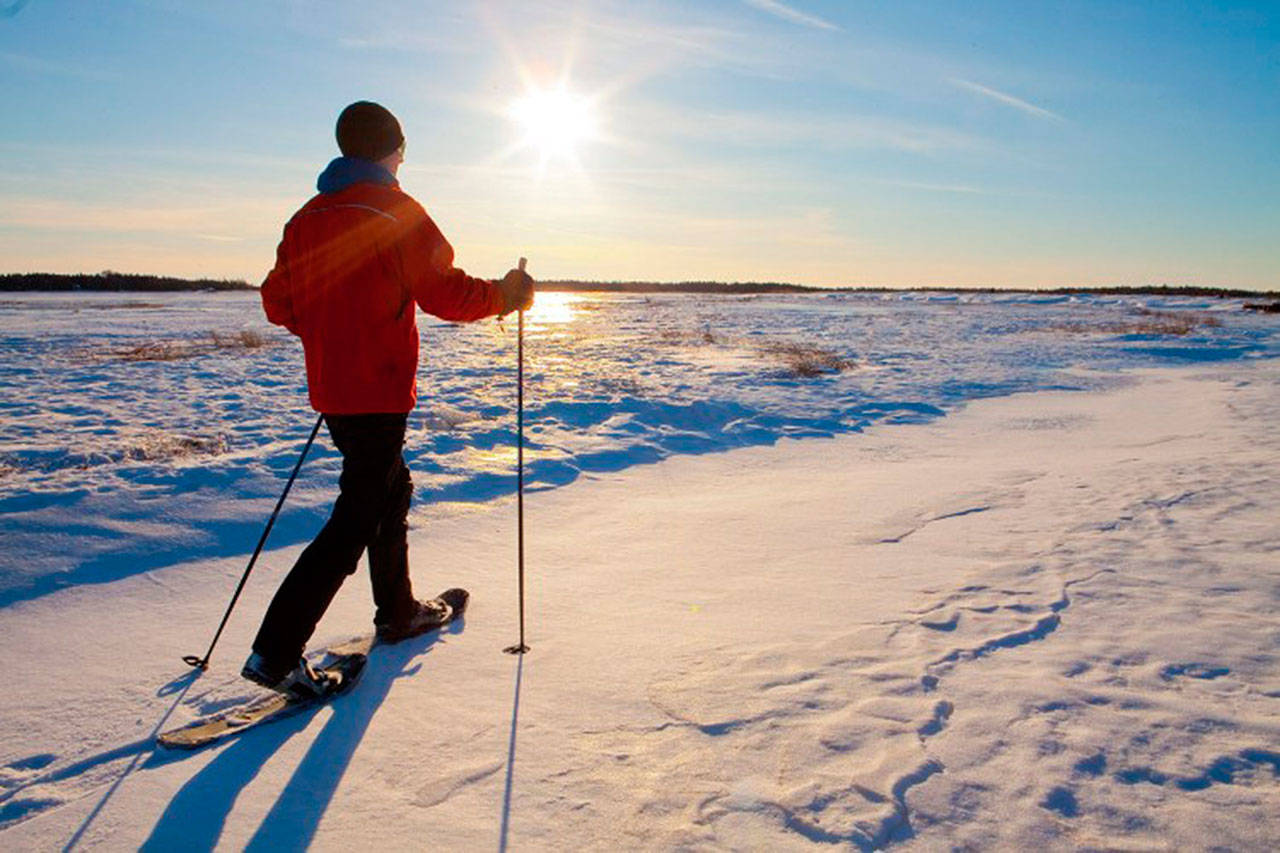The following was written by Public Health Insider, the blog for Public Health — Seattle & King County:
As winter approaches, you may find yourself driving in the snow, skiing, snowboarding, sledding, ice skating, or giving gifts this season. Get ready with these safety tips from the Violence and Injury Prevention team at Public Health—Seattle & King County.
Remember to check the current local COVID-19 protocols and travel guidance before you go out, as we all work to minimize contact with people from outside our immediate households and stop the spread of the coronavirus.
During the current surge in cases, it’s best to not gather with others outside of your household. But if you do venture out, it’s important to wear a mask and maintain at least six feet of distance from others. If you are traveling by car, people from separate households should travel in separate vehicles.
DRIVING IN THE SNOW
Be prepared: Whether you are driving through a snowy pass, or Seattle gets hit with snow this winter, it’s a good idea to check the weather report, road conditions and traffic before driving. Car batteries and tires are affected by cold weather, so check battery life and tire pressure in preparation for the winter season. Also, snow tires are advised.
Drive slowly in snow. Many King County areas, especially with hills, are dangerous and should be avoided in ice or snow. Remember, as the snow is melting, black ice can form, so be extra careful even if it looks like it is safe.
If you hit black ice or start to skid, remain calm. Do not step on your brakes. Steer into the skid in order to regain control. If you have anti-lock brakes, pulsing the brakes controls a potential skid. If you have conventional braking, pressing hard on the brake will send the car potentially into a skid, making it worse. Check out what type of brakes your car has before driving so you are prepared.
If you get stalled in wintry weather, put bright markers on the antenna or windows, with the interior dome light turned off to save your car battery. To keep warm, turn your car on and off as needed, but first make sure your exhaust pipe is clear of snow. Make sure you have an emergency kit packed in your car. For more on driving in the snow, check out the National Highway Traffic Safety Administration tips here: https://www.nhtsa.gov/winter-driving-tips
SKIING, SNOWBOARDING, SNOWSHOEING, AND SLEDDING
If you are driving to an outdoor recreation area, please don’t carpool with people from outside your household this winter. We need to limit these close contacts.
Making stops along the way for gas, food, or bathroom breaks also can put you and your traveling companions at higher risk for exposure to coronavirus – by being in close contact with other people and frequently touched surfaces.
It’s best to plan ahead and take precautions for COVID-19 and overall safety:
• Bring food and drinks so you won’t need to stop along the way.
• Pack hand sanitizer and extra masks.
• Avoid public restrooms if possible, but If you must use one, wash your hands with soap and water for 20 seconds afterwards – or apply hand sanitizer with at least 60 percent alcohol. (Ski areas may have closed their restaurants and bathrooms to reduce the spread of coronavirus.)
• Check the avalanche forecast and ski area website before you leave.
• Bring a form of navigation, a first aid kit, and sun protection.
• Use your vehicle as base camp to reduce contact with others.
• If you’re taking a lunch or dinner break, plan to eat outdoors or in your car.
Whether you are skiing, snowboarding or sledding, wear a helmet. How do you know if your helmet fits you? The Centers for Disease Control and Prevention has guidance on helmet sizing and care. You can check out the information here.
If you are staying local, sledding is a fun activity, too – but stay off the streets and away from cars and trees.
ICE SKATING SAFETY
During some King County winters, we may have prolonged freezing of small lakes. Each year, people are tempted to skate on this naturally forming ice. However, especially in Western Washington, ice does not get thick enough to safely skate. So, your best bet is to stay off frozen lakes. Indoor ice skating rinks are closed to prevent the spread of coronavirus indoors, so this winter may be the time to try a different sport.
GIFT GIVING
Here are some tips for giving the gift of safety for the holidays:
• If you are giving a bike, scooter, skateboard, snowboard or skis, remember to give a helmet too!
• If you are giving a toy to a child, check the warning labels and instructions to make sure it’s age-appropriate.
• If you have a friend or loved one who owns a gun and want to give them a locking device, you can get 10-15% off storage devices or lockboxes at participating retailers by mentioning Public Health or Lock It Up.
• Be mindful of gifts with button batteries. Swallowing button batteries unintentionally can be very dangerous, so keep these away from children.
• If you have children of different ages, separate toys by age and keep them accessible only to kids the toys are meant for and away from younger children.
Enjoy a safe and healthy winter season!



